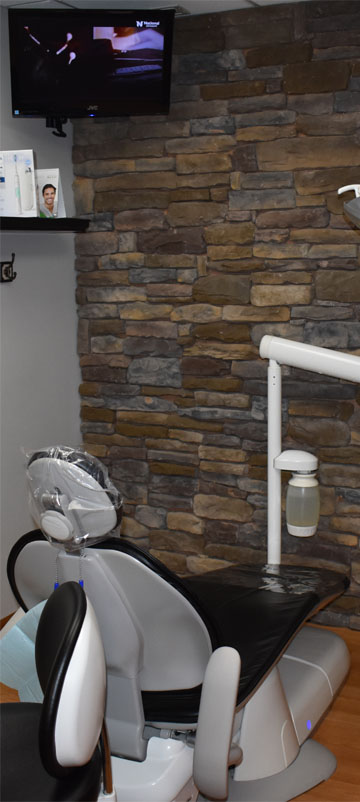What is tooth sensitivity?
Tooth sensitivity is the pain you may feel when you eat or drink hot or cold foods or drinks. You may also feel pain when you breathe in cold air.
Sensitivity can happen when gums pull away from the teeth or when gum tissue is lost. Gum loss can occur as a result of brushing too hard or not brushing and flossing regularly.
When gum loss occurs, the part of the tooth below the gumline can be exposed. This is called the tooth root. There are tiny tunnels that contain fluid and lead from the tooth root to the tooth’s nerve center. This nerve center is called the pulp. When heat or cold touches these tunnels, the tooth fluid can excite the nerve, causing pain in your teeth.
Sensitivity can also happen if the tooth’s hard surface layer, called enamel, gets worn away.
Tooth sensitivity can come and go, but ignoring it can lead to other health problems in your mouth.
These factors can contribute to tooth sensitivity:
- Brushing too hard or using a toothbrush with hard bristles
This can cause gum loss. - Sugary and acidic foods and drinks
Cola/soda, fruit juices, and sugary snacks can contribute to cavities, which may cause sensitivity. - Teeth grinding
This can wear down tooth surfaces. - Dental cleanings or treatments
Sensitivity can happen after dental cleanings or treatments like tooth whitening. It usually goes away shortly after treatment ends. If you have any concerns, talk to your dental team.
Here are some ways to help prevent sensitivity:
- Brush and floss your teeth twice a day to prevent gum loss
Be sure to clean all parts of your mouth, including between teeth and along the gumline. - Brush gently and use a toothbrush with soft bristles
This will help prevent gum loss and protect your enamel from being worn away. - Avoid acidic foods and drinks.
- If you still have sensitivity, talk to your dental team. They may have other suggestions.
For more tips on how to prevent sensitivity or to treat your sensitive tooth, please contact Moore Family Dental at 716.835.1670.



